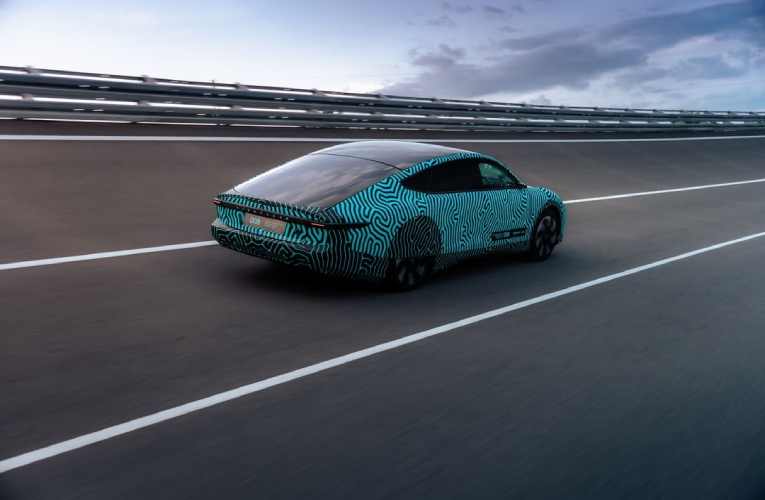
Lightyear, the solar electric vehicle pioneer has successfully tested its 'Lightyear One' prototype car that drove for 710 km on a single charge of 60 kWh. The long-range solar electric vehicle prototype was put to the test at the Aldenhoven Testing Center in Germany, to drive a full drive cycle at a speed of 85 km per hour on a single battery charge of 60 kWh.
This prototype car has over 440 miles of range with an energy consumption of only 137 Wh/Mile at 53 miles an hour. As told by Lex Hoefsloot, CEO and co-founder of Lightyear, the most efficient electric cars in the market today consume around 50% more energy at relatively low speed and the Lightyear One Solar Prototype Car ensures to lower down the energy consumption per mile of an EV providing a lot of range on a small battery. With solar panels that get charged on the way through solar energy, there is no need to charge the car for months. The integral test ranged from validating the yield of the solar panels, the battery performance, the energy consumption of the cooling system, the functioning of the in-wheel motors, and the software operating the solar car.
The unique architecture and technology of Lightyear One enable it to consume only 83 Wh/km which is two to three times less energy than any other electric vehicle on the market today. This results in an exceptional range of 725 km (WLTP) with low emissions, low charging frequency, and 7,000 to 20,000 kilometers of free, effortless, and clean solar range every year. An exclusive series of 946 Lightyear One’s will go into production in the first half of 2022 and the company plans to address the mass market starting from 2024.

